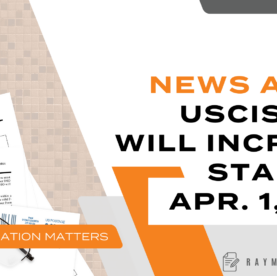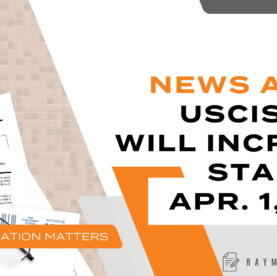D.C. Circuit Court Along with Nine Other Circuit Courts Rules that USCIS Has Final Say in Visa Revocations
On July 20, the D.C. Circuit Court joined nine others to rule that visa revocations by the United States Citizenship and Immigration Services (“USCIS”) cannot be further reviewed by the courts.
The three-judge panel joined the First, Third, Fourth, Fifth, Sixth, Seventh, Eighth, Tenth, and Eleventh circuits in issuing this decision. The Second Circuit Court of Appeals has adopted a similar interpretation in the form of dicta (an unbinding decision). The Ninth Circuit is the only jurisdiction to hold that visa revocations are subject to judicial review.
iTech U.S. Inc. v. Renaud, U.S. Court of Appeals for the D.C. Circuit
Vermont-based immigration attorneys had filed a case against USCIS regarding iTech’s I-140, an immigrant visa petition filed in 2015 on behalf of an Indian citizen. USCIS initially approved the I-140, but later issued a Notice of Intent to Revoke (NOIR) in 2017. USCIS cited inconsistencies over the beneficiary’s educational qualifications and the wages to be paid by iTech.
iTech responded to the NOIR by providing further evidence clarifying the beneficiary’s educational qualifications and providing additional proof of iTech’s ability to pay. USCIS, still unconvinced, revoked iTech’s I-140. In August 2018, iTech filed a Motion to Reopen, which was denied by the USCIS later that year. iTech then sued USCIS in the federal district court for the District of Columbia, alleging that USCIS violated the Administrative Procedure Act by revoking the I-140 in an “arbitrary and capricious” manner. USCIS filed a motion to dismiss the case for lack of jurisdiction, claiming that their officers can revoke an I-140 petition at any time for any reason if good and sufficient cause is shown. The Federal Court granted USCIS a motion to dismiss.
The Appeal
iTech further appealed to the District Court of Columbia, arguing that only discretionary denials are insulated from judicial review, and revoking an I-140 does not fall within that classification. USCIS argued that their decisions are exempt from judicial review. The Court once again rejected iTech’s reading of the statute and upheld the USCIS’s interpretation, joining many other circuit courts in the United States.
To learn more about this blog post or if you have any other immigration concerns, please feel free to contact me at rglahoud@norris-law.com or (484) 544-0022.
Posted in: Citizenship, USCIS |
Tags: immigration status, international migration





